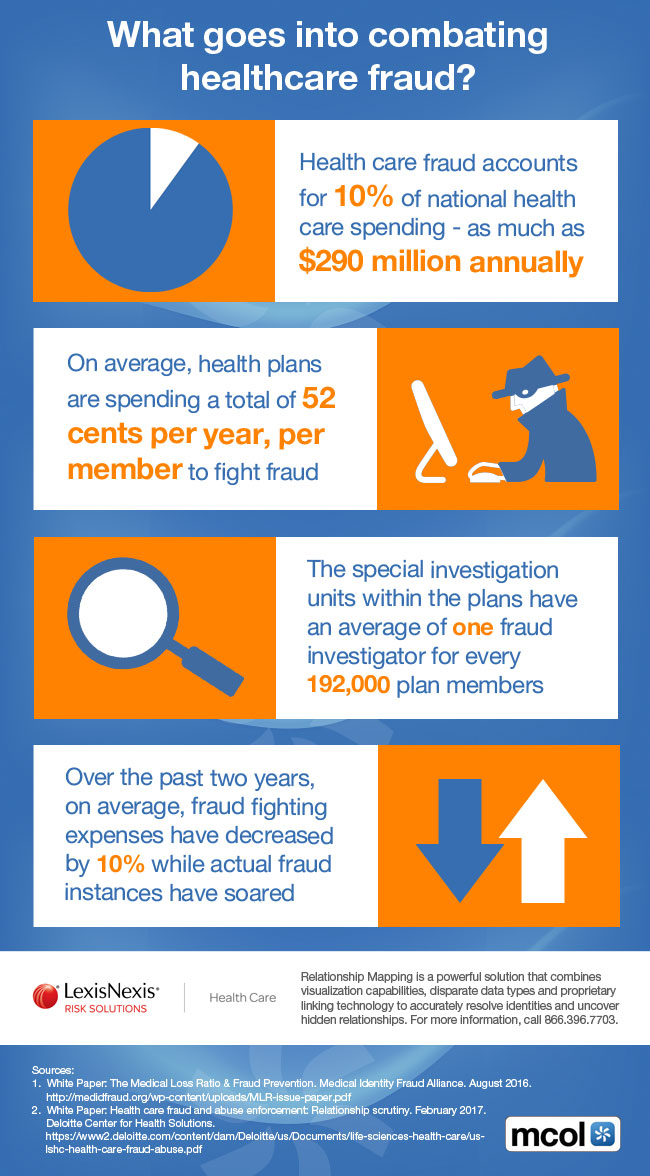What Goes into Combating Healthcare Fraud
|
By Claire Thayer, April 27, 2017
According to the
National Health Care Anti-Fraud Association, most health
care fraud is committed by organized crime groups and a very small
minority of dishonest health care provider. The NHCAA tells us that the
most common types of fraud include:
·
Billing for
services that were never rendered-either by using genuine patient information,
sometimes obtained through identity theft, to fabricate entire claims or
by padding claims with charges for procedures or services that did not
take place.
·
Billing for
more expensive services or procedures than were actually provided or performed,
commonly known as "upcoding"-i.e., falsely billing for a higher-priced
treatment than was actually provided (which often requires the
accompanying "inflation" of the patient's diagnosis code to a more
serious condition consistent with the false procedure code).
·
Performing
medically unnecessary services solely for the purpose of generating
insurance payments.
·
Misrepresenting non-covered treatments as medically necessary covered treatments for purposes of
obtaining insurance payments-widely seen in cosmetic-surgery schemes, in
which non-covered cosmetic procedures such as "nose jobs" are billed to
patients' insurers as deviated-septum repairs.
·
Falsifying a
patient's diagnosis to justify tests, surgeries or other procedures that
aren't medically necessary.
·
Unbundling - billing
each step of a procedure as if it were a separate procedure.
·
Billing a
patient more than the co-pay amount for services that were prepaid or paid in
full by the benefit plan under the terms of a managed care contract.
·
Accepting
kickbacks for
patient referrals.
·
Waiving
patient co-pays or deductibles for medical or dental care and over-billing
the insurance carrier or benefit plan (insurers often set the policy
with regard to the waiver of co-pays through its provider contracting
process; while, under Medicare, routinely waiving co-pays is prohibited
and may only be waived due to "financial hardship").
While
the U.S. Department of Justice, FBI, CMS and other government entities
are busy identifying and tracking down fraud schemes,
Deloitte research points out
that an emerging area of interest in health care fraud and abuse
enforcement is that of relationship scrutiny. This weeks’ edition of the MCOL Infographic, co-sponsored by LexisNexis, highlights some of the costs associated with fighting healthcare fraud:
(Click to View Full Size Image)
|


 Share This Post
Share This Post 
Reader Comments